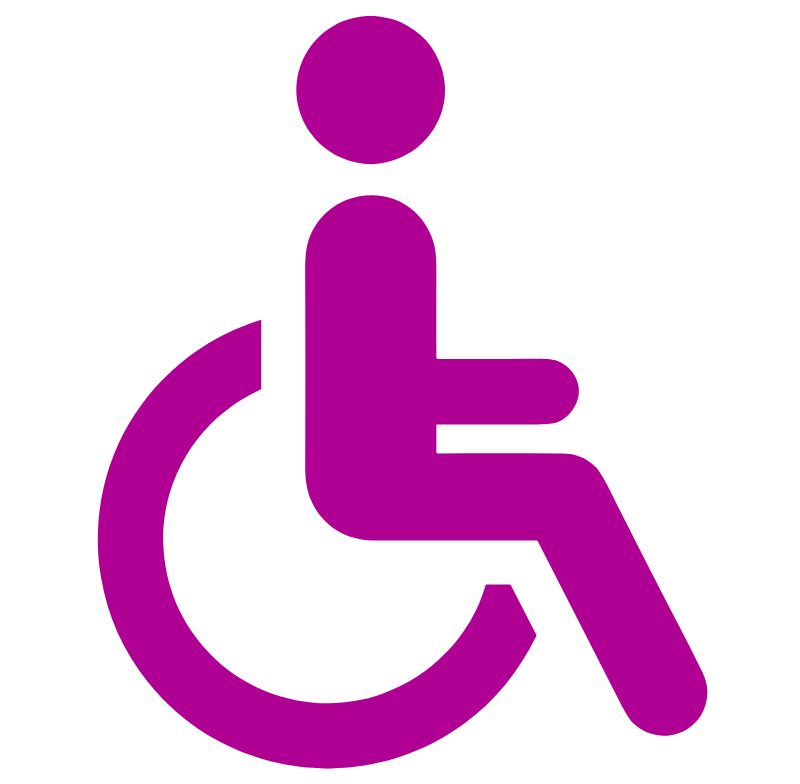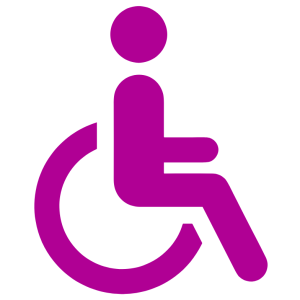Accessing disabled toilets in the UK can often seem daunting if you’re not familiar with the processes and tools available. These facilities are essential for individuals with mobility issues, chronic conditions, or disabilities, offering safety, comfort, and privacy when out and about. This guide will explain how to access disabled toilets, the role of the RADAR key, its pros and cons, and where to find accessible toilets across the UK.
Understanding Disabled Toilet Access in the UK
Disabled toilets are designed to meet the needs of individuals who require additional support. They often include features such as grab rails, emergency pull cords, ample space for wheelchairs or mobility aids, and adjustable equipment. However, many of these facilities are locked to ensure they remain available for those who genuinely need them.
To access these locked facilities, a RADAR key is often required. This system was created by the Royal Association for Disability and Rehabilitation (now known as Disability Rights UK) to ensure that disabled individuals can reliably access clean and secure toilets.
What is a RADAR Key?
A RADAR key is a universal key that opens more than 10,000 locked disabled toilets across the UK. These keys are part of the National Key Scheme (NKS), which helps prevent misuse of facilities while ensuring that they are readily accessible to those who need them.
The RADAR key has become a cornerstone of accessible toilet use in the UK, and it is designed to be easy to operate, even for individuals with limited dexterity.
Where to Get a RADAR Key
Obtaining a RADAR key is a straightforward process. There are several ways you can get one:
- Disability Rights UK: The organization sells official RADAR keys via their website. These keys are sturdy, high-quality, and universally compatible with NKS locks.
- Local Councils: Many councils offer RADAR keys for free or at a nominal cost to residents with disabilities. Contact your local council to inquire about their policy.
- Online Retailers: Some retailers, such as Amazon and eBay, sell RADAR keys. However, ensure you are purchasing from a reputable seller to avoid counterfeit products.
- Charities and Support Organizations: Disability-focused charities may provide keys as part of their support services or direct you to where you can obtain one.
To buy a key, you may need to provide proof of your disability or evidence that you require access to disabled toilets. This could include a doctor’s note, a Blue Badge, or other relevant documentation.
Pros and Cons of Using a RADAR Key
While the RADAR key system has been a game-changer for many, it’s important to weigh its advantages and drawbacks.
Pros:
- Accessibility: A RADAR key ensures that you can access locked disabled toilets wherever you go in the UK, offering peace of mind.
- Hygiene: Locked toilets tend to be cleaner and better maintained since they are used exclusively by those who need them.
- Privacy and Safety: These toilets are often more spacious and include features like grab rails and emergency alarms, enhancing safety.
- Prevention of Misuse: The key system prevents able-bodied individuals from using disabled facilities inappropriately.
Cons:
- Cost: While keys are relatively affordable, some may find the cost prohibitive, especially if local councils charge for them.
- Limited Availability in Some Areas: Not all locations participate in the NKS, which may result in some disabled toilets being inaccessible.
- Misplacement: Losing your RADAR key can be inconvenient, requiring you to replace it to regain access.
- Lock Issues: Occasionally, locks may be faulty, preventing access even with a valid key.
Locations of Disabled Toilets in the UK
Disabled toilets can be found in a variety of locations, ensuring that you have access wherever you go. Here are some common places to find these facilities:
- Shopping Centres: Many shopping malls and retail parks have accessible toilets equipped with RADAR locks.
- Train Stations: Most major train stations include disabled toilets as part of their facilities.
- Motorway Services: Service stations along motorways often have accessible toilets to cater to travelers with disabilities.
- Public Buildings: Libraries, town halls, museums, and galleries frequently provide accessible toilets for visitors.
- Supermarkets: Large supermarket chains like Tesco, Sainsbury’s, and Asda often have disabled toilets.
- Tourist Attractions: Popular destinations such as theme parks, heritage sites, and zoos typically have accessible toilets.
- Hospitals and Healthcare Facilities: These locations are guaranteed to have accessible toilets for patients and visitors.
- Parks and Recreational Areas: Many local parks and nature reserves include disabled toilets, especially those managed by councils or organizations like the National Trust.
To locate these toilets easily, several resources can help.
Using Technology to Locate Disabled Toilets
In the digital age, finding disabled toilets has become much easier. Here are some tools you can use:
- AccessAble: This app provides detailed access guides to thousands of venues across the UK, including the location of disabled toilets.
- Changing Places Finder: This tool helps you locate Changing Places toilets, which are larger facilities equipped with features like hoists and adult-sized changing benches.
- Google Maps: Many public toilets, including those with RADAR locks, are listed on Google Maps.
- Local Council Websites: Many councils have maps or lists of public toilets, including accessible ones.
- Toilet Card Apps: Apps like Flush and WhereIsPublicToilet can help you locate accessible toilets on the go.
Tips for Using Disabled Toilets in the UK
To ensure a smooth experience, consider the following tips:
- Always Carry Your RADAR Key: Keep your key in a designated spot, such as a bag or keychain, to avoid losing it.
- Plan Ahead: Use apps or online resources to identify accessible toilets in your destination before heading out.
- Report Issues: If you encounter a broken lock or unclean facility, notify the managing organization or council to resolve the issue.
- Be Prepared for Alternatives: In areas where NKS toilets are unavailable, consider using accessible facilities in larger chain businesses like coffee shops or fast-food restaurants.
The Importance of Accessibility
Ensuring access to disabled toilets is not just a matter of convenience but a fundamental aspect of inclusion and dignity for individuals with disabilities. By understanding how to obtain and use a RADAR key and knowing where to find accessible toilets, you can enjoy greater freedom and confidence when travelling or exploring the UK.
The RADAR key system, combined with the increasing availability of accessible toilets, has made a significant impact on improving mobility and independence for disabled individuals. While there are areas for improvement, such as expanding the number of participating locations, the system remains a vital resource for many.
Some Final Thoughts
Accessing disabled toilets in the UK doesn’t have to be complicated. With a RADAR key, you can unlock thousands of secure, clean, and well-equipped facilities across the country. By understanding where to obtain a key, the pros and cons of the system, and the best tools for locating accessible toilets, you can make your journeys more comfortable and stress-free.
Whether you’re heading to a shopping centre, train station, or national park, rest assured that the RADAR key and resources like AccessAble and Changing Places Finder have your needs covered. With this knowledge in hand, you can navigate the UK with greater ease and confidence.
For a similar post from me, see How to Apply for a Blue Badge in the UK.
Discover more from The Blue Badge Blog
Subscribe to get the latest posts sent to your email.


Leave a Reply